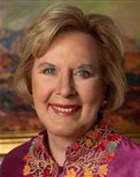Few executives can claim they have no biases when making decisions. Successful businesses require rational decision-making, not decisions driven by prejudice or bias. Often, these biases are subtle and held by many top team members without their awareness. Statements are made as if they are self-evident when the facts may not support them at all.
Many biases are allowed to survive in the interests of harmony and consensus. This bias can lead to groupthink and the exclusion of new and fresh ideas. If team interactions are open in an environment of trust, ideas that may seem strange and off the wall are openly debated. Recruiting individuals from different industries, backgrounds, and cultures can help to break down ingrained biases.
Strong, confident leaders will embrace these different views. Herd mentality and groupthink can be very damaging to a business. Innovation requires different views in an environment where everyone feels free to speak, experiment, and innovate. Biases are often unconscious and can be deeply ingrained. For example, the belief that specific jobs can only be done by men or someone with at least 20 years of experience, etc. The number of women pilots, engineers, farmers, and security personnel prevalent today was unheard of 20 years ago.
Believing that only someone similar to ourselves can do the job is known as affinity bias. While this bias may have short-term benefits - everyone feels comfortable, and a country club atmosphere may prevail - it can also lead to sterility and a lack of fresh thinking.
Evidence bias can lead to poor outcomes. Only data supporting that view is brought to the table when a particular view is widely held. Potentially unpopular questions: Where is the evidence to support that view, and what evidence is there to support the exact opposite view? This approach can make people uncomfortable, but it will result in better decision-making. A strong CEO or chairperson often insists on airing and debating opposing views, even though this approach will take much longer to reach a decision.
Steve Jobs said, “Let go of your pride when better evidence appears.”
That’s the problem with biases. They can lead to lazy thinking and comfort. Successful businesses thrive on healthy disagreement and debate and attempt to avoid biases at all costs.






























